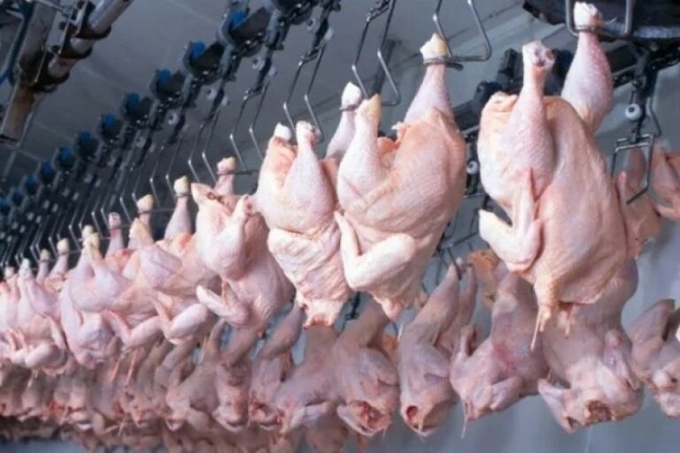May 24, 2025 | 11:31 GMT +7
May 24, 2025 | 11:31 GMT +7
Hotline: 0913.378.918
May 24, 2025 | 11:31 GMT +7
Hotline: 0913.378.918

According to ABPA, Brazilian exports might reach 5.25 million tonnes.
The production of chicken meat in Brazil is anticipated to reach between 15 and 15.1 million tonnes this year, reflecting a slight increase of 1.8% compared to last year’s production of 14.833 million tonnes, according to the Brazilian Association of Animal Protein (ABPA).
Projections for 2025 suggest that production could range from 15.25 to 15.35 million tonnes, marking an increase of up to 2.3% compared to the expected output for 2024.
In terms of exports, ABPA projects total shipments this year to reach up to 5.25 million tonnes, a 2.2% increase over the 5.139 million tonnes recorded in 2023. Regarding 2025, international sales may climb to 5.35 million tonnes, representing a 1.9% rise over the forecasted exports for 2024.
The domestic supply of chicken meat in 2024 is estimated to reach approximately 9.85 million tonnes, up to 1.5% more than the 9.694 million tonnes available in 2023. For 2025, the domestic availability is projected to be around 10 million tonnes, a further 1.5% increase compared to this year’s forecast.
Regarding per capita consumption, the figure is to be around 45 kg this year, maintaining stability compared to the 45.1 kg recorded in 2023. In 2025, per capita consumption is projected to rise to 46 kg, a 2% increase from the expected consumption for 2024.
After confirming an outbreak of Newcastle Disease at a commercial poultry farm on 17 July, Brazil has taken significant steps to fully reopen its market and resume the export flow of poultry meat and products.
The Ministry of Agriculture and Livestock (Mapa) informed the outbreak was contained the World Organisation for Animal Health (WOAH) on July 25. As a result, the official document registered with the international entity was updated on 26 July, indicating no ongoing virus outbreak in the country.
This update allows the Brazilian government to await the lifting of suspensions by importing countries, paving the way for the full resumption of poultry meat exports.
The follow-up report published on the WOAH website states: “The epidemiological investigation conducted by the Official Veterinary Services in the peripheral and surveillance areas did not identify animals showing clinical signs compatible with Newcastle Disease.”
(Poultryworld)

(VAN) Alt Carbon has raised $12 million in a seed round as it plans to scale its carbon dioxide removal work in the South Asian nation.

(VAN) Attempts to bring down the price of the Japanese staple have had little effect amid a cost-of-living crisis.

(VAN) Fourth most important food crop in peril as Latin America and Caribbean suffer from slow-onset climate disaster.

(VAN) Shifting market dynamics and the noise around new legislation has propelled Trouw Nutrition’s research around early life nutrition in poultry. Today, it continues to be a key area of research.

(VAN) India is concerned about its food security and the livelihoods of its farmers if more US food imports are allowed.

(VAN) FAO's Director-General emphasises the need to work together to transform agrifood systems.

(VAN) Europe is facing its worst outbreak of foot-and-mouth since the start of the century.